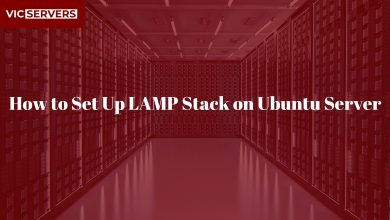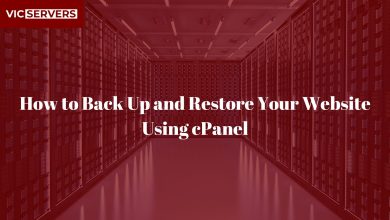How to Host a Node.js App on Your VPS

How to Host a Node.js App on Your VPS
Node.js has become one of the most popular platforms for building fast, scalable applications. Whether you’re developing a real-time chat app, an API, or an e-commerce site, deploying your Node.js project to a VPS (Virtual Private Server) ensures better performance, security, and full control compared to shared hosting.
In this guide, we’ll walk you step-by-step through hosting a Node.js app on your VPS, from installation to deployment.
Step 1: Update Your Server
Before installing Node.js, make sure your VPS is up to date:
sudo apt update && sudo apt upgrade -y
Step 2: Install Node.js and npm
Node.js comes with npm (Node Package Manager), which you’ll use to manage dependencies. Install it with:
sudo apt install nodejs npm -y
Check the versions to confirm installation:
node -v
npm -v
For the latest stable version, you can also install Node.js using NodeSource:
curl -fsSL https://deb.nodesource.com/setup_18.x | sudo -E bash -
sudo apt install -y nodejs
Step 3: Upload Your App to the VPS
You can upload your Node.js project files using Git, FileZilla (SFTP), or scp. Example with Git:
git clone https://github.com/yourusername/your-node-app.git
cd your-node-app
Install dependencies:
npm install
Step 4: Test Your App
Run your app locally on the VPS to confirm it works:
node app.js
Or, if you’re using a framework like Express, it might be:
npm start
By default, Node.js apps run on a port (e.g., 3000). Test it in your browser:
http://your-server-ip:3000
Step 5: Use PM2 to Keep Your App Running
By default, if you close the terminal, your app will stop. To solve this, install PM2, a process manager for Node.js:
sudo npm install -g pm2
Start your app with PM2:
pm2 start app.js
Enable PM2 to auto-start on server reboot:
pm2 startup systemd
pm2 save
Now, your Node.js app will always stay online.
Step 6: Set Up a Reverse Proxy with Nginx
Your app is running, but it’s only accessible via port (e.g., :3000). To make it accessible via your domain (e.g., https://example.com), configure Nginx as a reverse proxy.
Install Nginx:
sudo apt install nginx -y
Create a new config file:
sudo nano /etc/nginx/sites-available/nodeapp
Add this configuration:
server {
listen 80;
server_name yourdomain.com www.yourdomain.com;
location / {
proxy_pass http://localhost:3000;
proxy_http_version 1.1;
proxy_set_header Upgrade $http_upgrade;
proxy_set_header Connection 'upgrade';
proxy_set_header Host $host;
proxy_cache_bypass $http_upgrade;
}
}
Enable the config and restart Nginx:
sudo ln -s /etc/nginx/sites-available/nodeapp /etc/nginx/sites-enabled/
sudo nginx -t
sudo systemctl restart nginx
Now, your app is available on your domain without needing a port number.
Step 7: Secure Your App with SSL (HTTPS)
For security and SEO, enable SSL using Certbot:
sudo apt install certbot python3-certbot-nginx -y
sudo certbot --nginx -d yourdomain.com -d www.yourdomain.com
Follow the prompts, and you’ll have HTTPS enabled.
Step 8: Verify Deployment
Visit your domain in a browser:
https://yourdomain.com
Your Node.js app should now be live and secure! 🎉
Conclusion
Hosting a Node.js app on your VPS gives you:
✅ Full control over your environment
✅ Scalability with PM2 and Nginx
✅ Secure access with SSL certificates
✅ Reliability with a dedicated VPS from Vicservers
At Vicservers, we provide VPS and dedicated servers optimized for Node.js and modern web applications. Whether you’re deploying a small project or scaling a large production system, we’ve got the right infrastructure for you.
Ready to host your Node.js app with confidence? Get started today with Vicservers VPS hosting!




